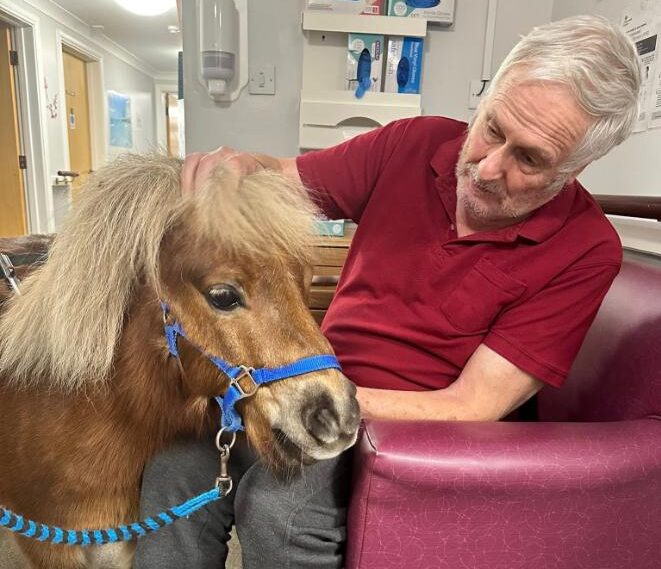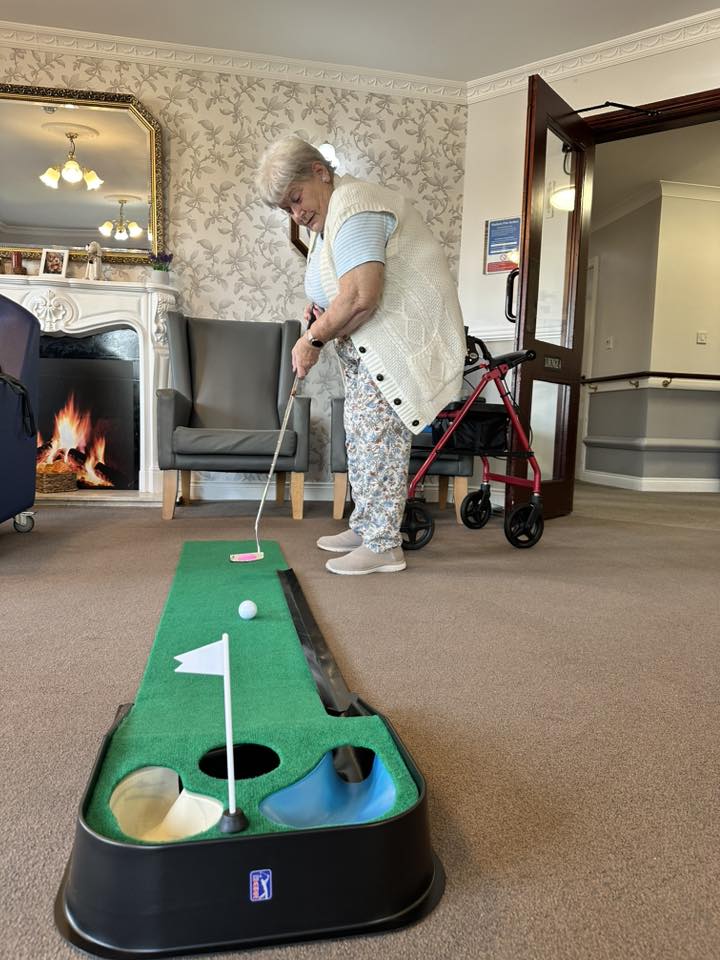What are the Responsibilities of a Dementia Nurse?

Dementia is a progressive neurological condition that affects millions of people in the UK. With over two thirds of people living in care homes having some form of dementia, the role of specialist dementia nurses is more crucial than ever. At Hillside Lodge Care Home, we understand the importance of providing the best possible care to those living with dementia - and that starts with knowledgable, compassionate professionals. But what are the responsibilities of a dementia nurse, and how do they support both individuals and their families throughout the dementia journey?
Let's explore the many responsibilities of dementia nurses, from providing emotional support to delivering life-changing interventions. Whether you're seeking care for a loved one or exploring the role of health professionals in dementia care, understanding the unique contribution of dementia nurses can offer new insights into the support available.
What is Dementia?
Dementia is an umbrella term used to describe a range of progressive neurological conditions that affect the brain. The most common types include Alzheimer's disease, vascular dementia, dementia with Lewy bodies, and frontotemporal dementia. These conditions lead to a decline in cognitive function, including memory, thinking, problem-solving, language, and behaviour. Dementia is not a normal part of ageing, although the risk increases with age. It can affect every aspect of a person's life, including their ability to carry out everyday tasks, communicate effectively, and maintain relationships. Understanding dementia is essential to providing the personalised care and emotional support that people need to live well.
What is a Dementia Nurse?
A dementia nurse is a registered nurse with specialised training and experience in dementia care. Often referred to as specialist dementia nurses or Admiral Nurses - particularly when affiliated with Dementia UK - these professionals are experts in providing tailored, compassionate support to people living dementia and their family carers. Some work in care homes, while others operate in the community, GP practices, or as part of the primary care team.
Whether based in hospitals, social services, or home care settings, dementia nurses are vital members of a multidisciplinary care team that may include social workers, community mental health nurses, practice nurses, and other health professionals.
Key Responsibilities of a Dementia Nurse
So, what are the responsibilities of a dementia nurse? Their role is multifaceted, involving clinical, emotional, and practical support to ensure positive outcomes for the person living with dementia, their family members, and everyone involved in their care.
1. Assessment and Early Diagnosis
Early recognition of dementia symptoms is essential to achieving the best possible care. Dementia nurses play a vital role in assessing cognitive decline and identifying signs of conditions such as Alzheimer's disease or vascular dementia. They collaborate closely with GPs, community nurses, and memory clinics to ensure timely diagnosis.
And early diagnosis allows the care team to implement effective care planning, offer coping strategies, and provide access to other services that support people from the outset of their dementia journey.
2. Care Planning and Coordination
Once a diagnosis is made, dementia nurses help develop a personalised care plan tailored to the individuals unique needs. This includes understanding their life history, preferences, routines, and medical requirements.
Care planning is a collaborative process involving the person, their family carers, and a network of health professionals. Dementia nurses ensure that every aspect of a person's health and well-being is considered, helping to improve quality of life and create a positive experience in care settings such as Hillside Lodge.
3. Emotional and Psychological Support
Living with dementia affects not only memory and thinking but also emotional well being. Dementia nurses provide essential emotional support and psychological support to both the individual and their loved ones. They develop a strong therapeutic relationship based on trust, empathy, and continuity of care.
For family members, coming to terms with a dementia diagnosis can be overwhelming. Dementia nurses offer life changing support by guiding families through the process, helping them understand what to expect and how best to support their loved one.
4. Support for Family Carers
Family carers are the unsung heroes of dementia care. They often bear the emotional and physical strain of supporting someone through cognitive impairment. Dementia nurses provide advice, training, and practical support to help carers feel confident in their role.
They also signpost carers to additional support, such as social services, respite care, and carer support groups, improving their ability to cope and maintain their own well being.
5. Education and Training
Part of the role of a dementia nurse involves educating patients, carers, and fellow health professionals about dementia. They deliver training on managing behavioural changes, understanding communication difficulties, and promoting dignity in care.
This education helps to reduce stigma, increase awareness, and empower families and professionals to provide person centred care.
6. Clinical and Medical Interventions
Dementia nurses also manage and monitor physical health concerns. As registered nurses, they can oversee medication regimes, monitor for signs of deterioration, and coordinate with other health professionals for interventions as needed.
They also look out for co-morbidities - like depression or urinary tract infections - that can exacerbate confusion and distress in people with dementia.
7. Navigating the Health and Social Care System
The journey through dementia care can be complex. From memory assessments to care home placements and legal planning, many families feel overwhelmed by the system. Dementia nurses act as guides, helping people affected by dementia navigate social services, benefits, and other services.
This guidance is particularly valuable when transitioning from primary care into specialist support, or when moving into residential dementia care settings.
Community-Based Dementia Nurses
Some dementia nurses work as part of the community mental health nurses team or community nurses within the NHS. These professionals visit people in their homes or residential setting and often serve as the first point of contact after a diagnosis.
Community-based dementia nurses are especially important in rural or underserved areas, where access to memory clinics or specialist services may be limited. By working with primary care and GP practices, they ensure ongoing monitoring and support is available close to home.
The Role of Admiral Nurses
Admiral nurses, developed by Dementia UK, are a unique type of specialist dementia nurses. They offer holistic, family-centred care that addresses both the practical and emotional challenges of dementia. These nurses are particularly skilled in complex cases, including younger onset dementia, multiple diagnoses, or challenging behaviours.
Admiral Nurses focus on building long-term, meaningful relationships that enable them to provide life changing support and help families achieve positive outcomes.
Skills Needed to Be a Dementia Nurses
To fulfil this challenging and rewarding role, dementia nurses require a wide range of skills and qualities:
Clinical expertises in neurology, mental health, and geriatrics
Strong communication and listening abilities
Empathy, patience, and emotional resilience
Excellent coordination and teamwork skills
A deep understanding of the dementia journey and its effects on life, relationships, and well being
Ongoing training is essential to keep up with the latest research and care practices, ensuring that dementia nurses always offer the best possible care.
Why Dementia Nurses Matter
The impact of a skilled dementia nurse extends far beyond the clinical. They are a lifeline to people living with dementia, helping them retain dignity, independence, and connection. For families, they are a steady hand in times of uncertainty, offering comfort, clarity, and practical help.
At Hillside Lodge Care Home, our dementia nurses play a pivotal role in creating a nurturing, compassionate environment where every person living with dementia is valued and supported. We believe that with the right professionals, support, and approach, people can live well with dementia.
Value of Dementia Nurses in Care
So, what are the responsibilities of a dementia nurse? From assessment and diagnosis to long-term emotional support and advocacy, they wear many hats - all in the service of improving the lives of people living with dementia and those who care for them.
Whether as Admiral Nurses, community mental health nurses, or members of the primary care team, these highly trained professionals offer knowledge, empathy, and the ability to provide care that truly makes a difference.
If you're exploring dementia care options or want to know more about the role of specialist dementia nurses at Hillside Lodge Care Home, we're here to help. Out team is dedicated to ensuring a positive experience for every resident and their family.
For further advice or to arrange a visit, please contact our friendly team today.






